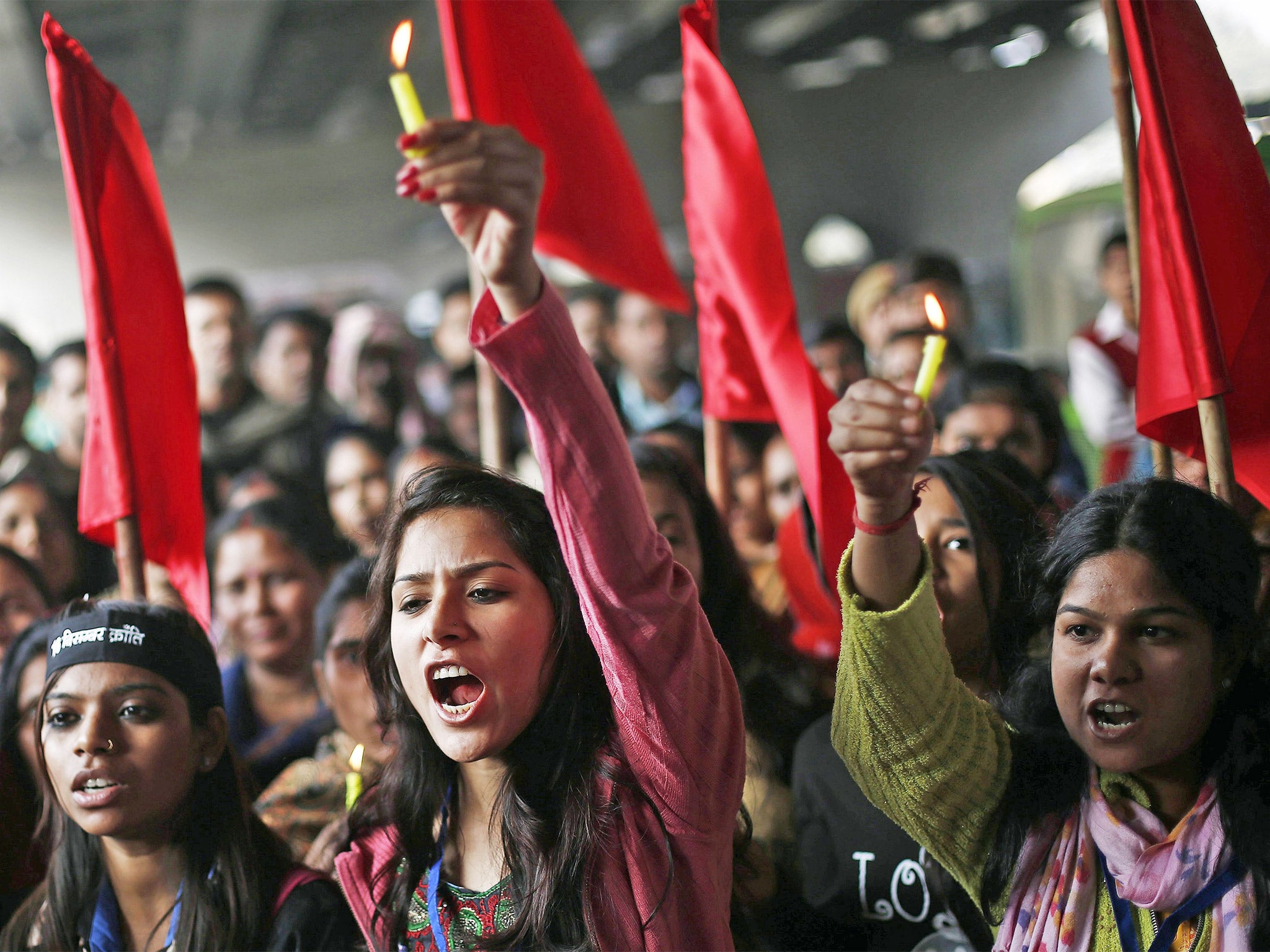Delhi gang-rape: Parents of woman fatally attacked on bus want youngest of her assailants identified to block release
The man, who was 17 when he committed the crime, was tried as a juvenile and given the maximum term of three years in detention, but the victim's family claim he remains a threat to society and should be kept behind bars

Your support helps us to tell the story
From reproductive rights to climate change to Big Tech, The Independent is on the ground when the story is developing. Whether it's investigating the financials of Elon Musk's pro-Trump PAC or producing our latest documentary, 'The A Word', which shines a light on the American women fighting for reproductive rights, we know how important it is to parse out the facts from the messaging.
At such a critical moment in US history, we need reporters on the ground. Your donation allows us to keep sending journalists to speak to both sides of the story.
The Independent is trusted by Americans across the entire political spectrum. And unlike many other quality news outlets, we choose not to lock Americans out of our reporting and analysis with paywalls. We believe quality journalism should be available to everyone, paid for by those who can afford it.
Your support makes all the difference.The parents of an Indian woman fatally gang-raped on a Delhi bus have appealed for the youngest of her attackers to be identified if they cannot block his release from prison next month.
Four men were sentenced to death for the savage assault in 2012, which triggered global outrage and soul-searching across India about the levels of violence against women. But a fifth assailant, who was 17 when he committed the crime and therefore cannot be identified, was tried as a juvenile and given the maximum term of three years in detention. He is due to be freed within weeks.
The parents of the 23-year-old victim, who became known as “Nirbhaya” meaning “fearless”, have lodged a complaint with India’s National Commission for Human Rights (NCHR), claiming the man remains a threat to society and should be kept behind bars.
“Tomorrow he will be living among us anonymously. Will he be able to resist the temptation of similar crimes?”, the victim’s father said. “If there is no law that can jail him, at least make his face public and monitor his movements.”
The attack on the trainee physiotherapist, who was lured on to a private bus on a foggy December night, repeatedly raped, tortured and then left on the side of the road to die, turned worldwide attention to women’s safety and gender-based violence in India.
Tighter laws to punish sex crimes were rushed through in the wake of her death but her family’s petition to the NCHR calls for the introduction of a sex offenders register.
“There is no doubt that the complainants have undergone extreme agony and pain after the rape and murder of their daughter,” the commission said. “The fears expressed by them need to be looked into.”
The NCHR has given the government and police two weeks to respond.
The short jail term handed to the youngest attacker angered many who said it did not reflect the brutality of the crime. It prompted a debate about trying juveniles as adults for serious offences.
The four men on death row are appealing against their sentences. A sixth man accused in the case hanged himself in jail during the trial.
Join our commenting forum
Join thought-provoking conversations, follow other Independent readers and see their replies
Comments